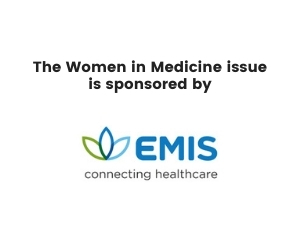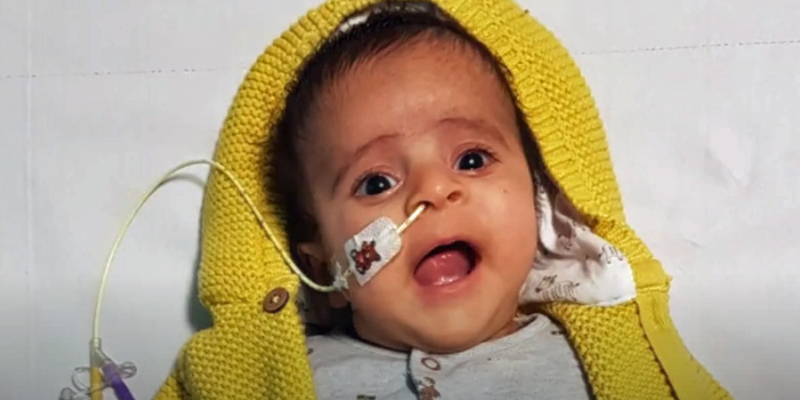Dr Natalie Shenker is a medical doctor, entrepreneur and researcher, who co-founded the Hearts Milk Bank in 2016, the UK’s first non-profit independent human milk bank, and now part of the Human Milk Foundation. Natalie’s team provides screened donor milk to hospitals across the UK and Ireland, and supports families where breastfeeding is impossible or difficult to establish. The Human Milk Bank won MassChallenge UK 2016 and is supported by the Cambridge Social Ventures programme at the Judge Business School.
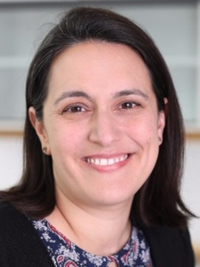
“It was clear something needed to change radically and quickly. With an amazing team, over just four years I have built up a tiny start-up social enterprise, the Hearts Milk Bank, into what is now the largest milk bank in the UK with the capacity to produce more milk than hospitals need.”
Re-evaluating what I really loved
I’m a medical doctor, graduating from Oxford in 2003 with a dream of improving children’s health and development. I started training in paediatric surgery, but an episode of ill health made me re-evaluate what I really loved, and I went back to research.
After an MSc in developmental biology and PhD in breast cancer epigenetics at Imperial, life looked very different – I had two daughters and a newfound fascination with human milk and milk banking – a service I had not come across as a paediatric surgeon, even though hospitals I had trained in had milk banks.
Milk banks used to be very common in the UK, and donated milk was the way that all babies were fed in hospital if their mothers didn’t have any or enough milk. In the 1980s, the twin issues of HIV and increasing infant formula marketing meant that formula replaced donor milk across most hospitals in the UK by the 1990s.
Women could be stigmatised and even prevented from getting life insurance if they had an HIV test, which was needed for donating milk. That’s not that long ago, but partly explains why our breastfeeding rates are some of the lowest in the world – human milk just isn’t valued as it used to be in hospitals and we’ve lost a lot of skill in supporting new mothers along the way.
More than just nutrition
There is a growing awareness in the medical community that human milk is more than just nutrition – lactation evolved to support the developing baby’s immune system, and with new discoveries in the last 15 years about the significance of the microbiome. The tragedy is that in the UK, most mothers want to breastfeed their babies, but 9 out of 10 stop before they would have liked. I was one, and personal experience has certainly driven me to keep going when progress has been difficult.
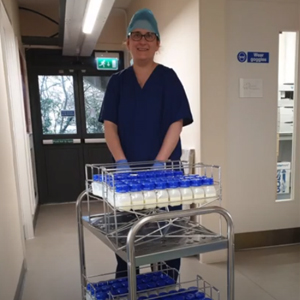
We work with an amazing network of volunteers who bring frozen milk into the milk bank at Hearts, where it is checked microbiologically and pasteurised, before being frozen and distributed by the volunteers to hospitals.
For very premature babies, being fed with human milk reduces their risk of life-threatening complications and can save lives, and where used appropriately, can act as a bridge to help mothers establish their own milk supply. But in 2015 milk banks were closing, milk bank leaders retiring, and milk banks lacked even the most basic equipment (I couldn’t even get my chair replaced in the NHS).
It was clear something needed to change radically and quickly. With an amazing team, over just four years I have built up a tiny start-up social enterprise, the Hearts Milk Bank, into what is now the largest milk bank in the UK with the capacity to produce more milk than hospitals need.
Positive impacts on breastfeeding rates and improved mental health
Hearts is now part of a new charity, the Human Milk Foundation, which supports access to donor milk as well as training and research in this area. Uniquely, we have developed a project in our local community to support new mothers with the myriad of issues breastfeeding can present – providing early specialised lactation support with the option of access to donor milk if babies need supplementing.
For parents who have no option to breastfeed, we make sure their babies have at least four weeks of donor milk to support development in the critical newborn period. So far, we’ve supported almost 200 families where mothers are affected by cancer or other illness.
My research aims to understand which families would benefit the most from this intervention, and the impacts on babies and their mothers. We’re finding positive impacts on breastfeeding rates and importantly improved maternal mental health.
Encouraging girls into medicine, science and entrepreneurialism
I’m really conscious of the need to encourage girls into medicine, science and entrepreneurialism. Women have so many perspectives that have been ignored in Western culture, but without women, the chance to solve the major problems in the world will be lost.
My own work aimed to solve a relatively small problem – can we make sure hospitals can always access donor milk when they need it. However, it has been like working with a Russian doll, with each new layer growing into something incredible that impacts globally and has implications for the health of this and future generations.
I guess it all started with anger, an anger I think many women feel, that their needs are side-lined in so many ways. Focussing on issues like breastfeeding or menopause as a woman’s issue misses the point of the wider impacts on society of not meeting women’s needs, and it has been brilliant to see the progress made by women working to improve the experience of women going through menopause. The Human Milk Foundation is ultimately a woman-led project, but involves so many men who also want to create a better future for their partners and children.
Providing positive solutions
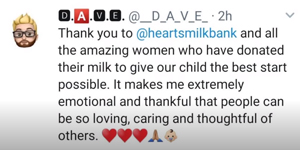
What I’m most excited about is how people from every section of society and diverse cultures are wanting to get involved, changing perspectives on this most difficult subject by providing positive solutions.
We have young MSc and PhD students looking at milk and milk banking from so many new angles, schoolchildren designing our milk mobiles.
Others are giving to the charity to help develop these services, creating hubs in their communities. Teachers may be interested in helping develop school courses on human milk science. Community groups may want to plant Milk Woods and snowdrop fields to honour milk donors, particularly those who are donating after bereavement.
It is becoming a movement – based on compassionate and individualised care to each mother and baby. My greatest excitement is that our work will make our society view women and motherhood in a more valued way, and make life a little easier for women as a result.
https://www.linkedin.com/in/natalie-shenker-7494898
https://twitter.com/drnshenker
https://humanmilkfoundation.org/
https://twitter.com/milk_foundation
[The main image at the top of the piece is of the gorgeous baby Koan. Born with a rare neurological condition called polymicrogyria, Koan received donor milk from the Hearts Milk Bank, funded by the Human Milk Foundation, after his hospitalisation at three months old. Koan had only been feeding only through his tube but the donor milk meant tube feeding could be reduced. Koan’s feeding improved and his weight increased.]
